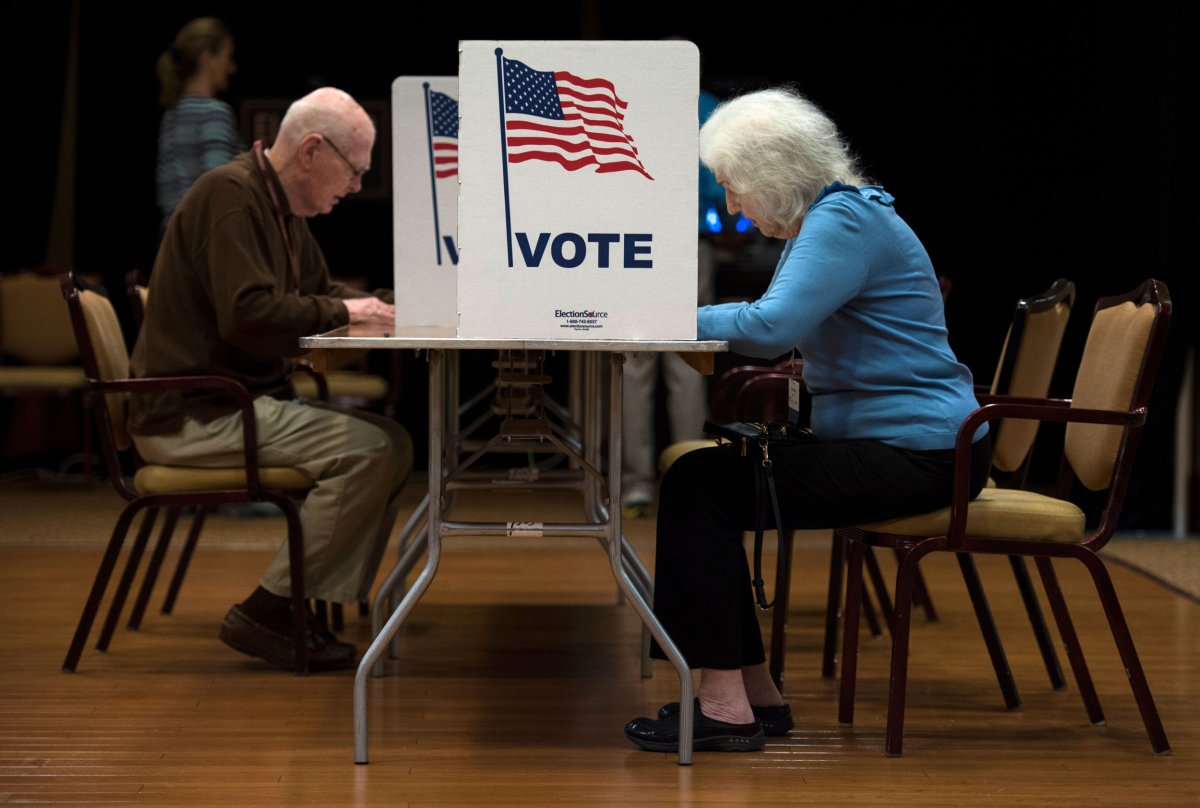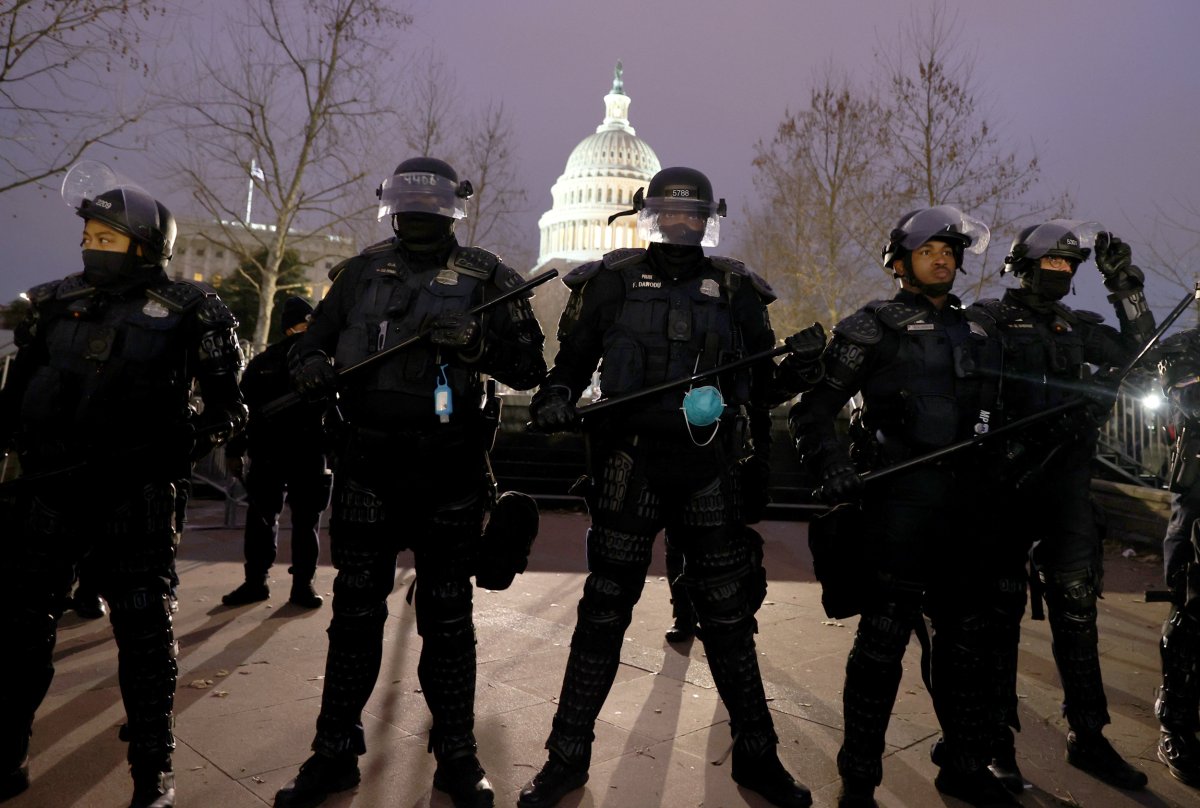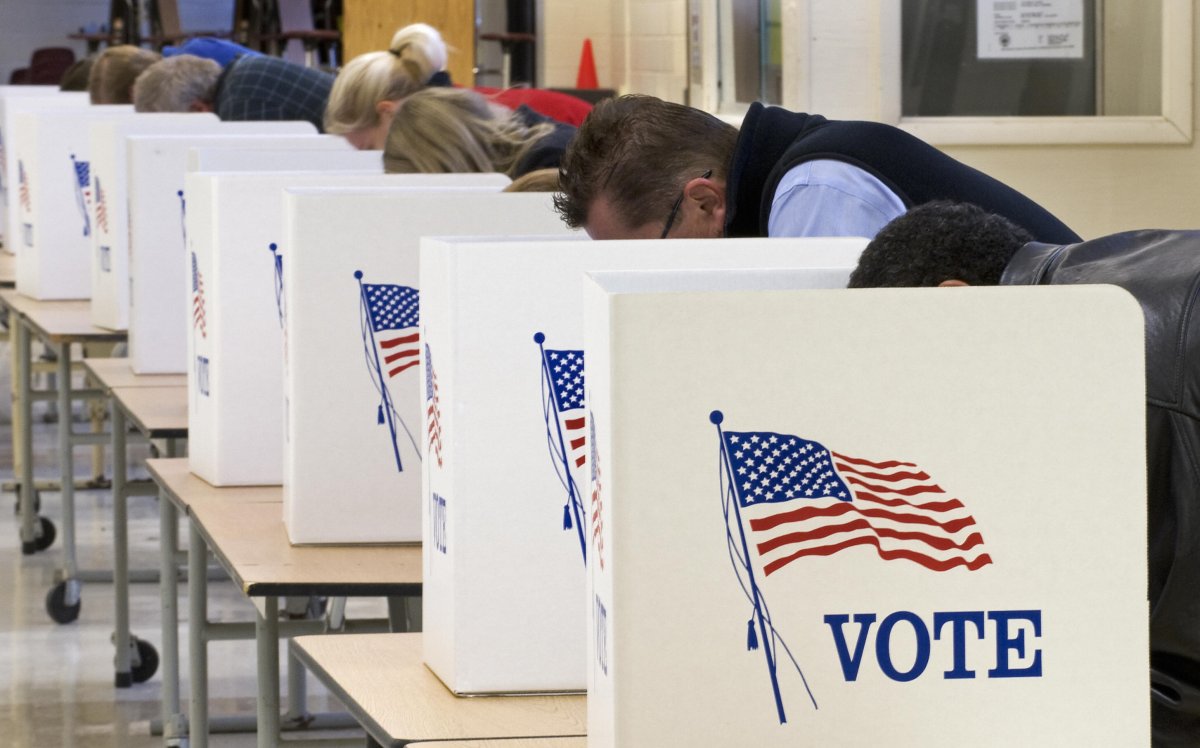With crime set to be a priority issue for voters heading into the 2024 election season, Democrats and Republicans are vying to control the narrative surrounding the contentious subject, presenting conflicting trends to cast blame on political rivals.
In a nation as vast as the United States, however, there are more than two sides to the story when it comes to the debate on crime, and it may take more than figures to win over constituents expressing concern over their well-being.
"Crime trends can look different depending on how you slice and dice them," Hanna Love, a senior researcher associated with the nonpartisan Brookings Institution who focuses on crime, told Newsweek. "Say murders are incredibly up but property crime has declined significantly, your total crime rate isn't going to actually tell you that much, and then also looking at statewide trends can sort of obscure what crime can look like cities."
"Crime data is complicated," she added, "And political rhetoric tends to simplify in a way that can benefit the outcomes that candidates want."
But that hasn't stopped the two parties from putting forth opposing platforms to address an issue that majorities on both sides view as serious.
With 64 percent of Republicans and 52 percent of Democrats considering violent crime to be a major problem, according to a June 28 poll conducted by the Pew Research Center, both parties are reaching out to voters to make the case as to why they're best equipped to handle the issue.

Republicans placed crime front and center during the 2022 midterms, ultimately securing control of the House of Representatives. However, Democrats lost fewer seats in the House than many predicted and gained a seat in the Senate.
"Republicans' false attacks about crime failed last cycle, and Senate Democrats had the most successful midterm outcome in modern history," Nora Keefe, a spokesperson for the Democratic Senatorial Campaign Committee, told Newsweek. "The truth is that the GOP voted against funding for the police and public safety, voted against common sense gun safety measures, and it was Democrats who fought to get communities the resources needed to fight crime and keep Americans safe."
In a June 5 article for The Atlantic, Jeff Asher, a New Orleans-based crime analyst who co-founded the AH Datalytics consulting firm, highlighted that the murder rate has fallen by roughly 12 percent year-to-date in more than 90 cities. He wrote that this puts the U.S. on track for one of the "largest annual percent changes in murder ever recorded." The New York Times highlighted this trend as well, making the issue the lead topic in its flagship morning newsletter on Monday.
However, despite that trend, the murder rate remains roughly 10 percent higher than it was in 2019. Amid the onset of COVID-19, America saw a nearly 30 percent spike in homicides between 2019 and 2020, according to the CDC's National Center for Health Statistics, the highest increase in modern history. Conservatives emphasize that in many places around the country Americans still feel unsafe.
"Thanks to Democrats' obsession with defunding the police, horrendous crimes like rape, robbery and felony assault are on the rise in New York," Savannah Viar, a spokesperson for the National Republican Congressional Committee, told Newsweek. "As long as Democrats continue to put the lives of Americans at risk, Republicans will remind them of their extreme policies at every turn."
New York has been a fixture in conversations around national crime as Mayor Eric Adams focused a major part of his 2021 campaign on making the city safer. Looking at crime trends in the city, as Viar noted, robberies in the city jumped by 26 percent from 2021 to 2022. Felony assaults climbed by 14 percent, and instances of rape jumped by over 8 percent.
However, murders fell by over 10 percent during that period, and New York State has one of the lowest crime rates in the country.

Love of the Brookings Institution explained that it can be hard to measure how voters may feel about the issue through the lens of national trends. Crime trends can vary significantly between places, she said, and national trends can obscure what's happening in certain localities.
To the Democratic Party's advantage, as Keefe pointed out, all Republicans in the House and Senate voted against the American Rescue Plan Act of 2021, which ultimately passed, allowing cities to designate federal dollars toward violence prevention programs.
A Brookings analysis, conducted by Love, showed that 92 local governments with populations of over 250,000 people used funding from the act for crime intervention programs, accounting for 28 percent of governments representing populations of that size. More than half of these funds went to Chicago, Cook County in Illinois, Baltimore, the consolidated government of Indianapolis, and Washington, D.C. While Chicago, Baltimore, and Indianapolis, have seen their murder decline, according to AH Datalytics, the nation's capital has seen an increase.
Love said that, although murders have declined as a whole, the phenomenon in D.C. illustrates how trends occurring in one place may not mirror the larger national picture, making it difficult to draw conclusions regarding the role of federal policy's effect on the issue.
"I don't think that the general public understands the nuances of crime data because they're hard to understand," Love said. "We've seen this before in elections where crime has been down nationwide, and Americans still rank it as their top concern."
When it comes to reaching voters on crime, those who understand the local and state dynamics will have to tailor their messages to respond to community needs in an authentic manner. For Republicans, this involves speaking to community-level dynamics that have taken place under Democratic leadership.
Josh McKoon, Republican Party chair for Georgia, a state that will prove crucial in determining the presidential race, said crime is one of his party's top issues ahead of election season. While violent crime in the city of Atlanta has returned to the near historic low the city saw in 2018, he said residents still face issues and that the real electoral question hangs on "how safe do people feel."
McKoon shared a story in which he said a friend of his eating lunch in a "nicer area of Atlanta" witnessed a shooting that occurred a few feet in front of her, ultimately waiting at the restaurant for hours to speak with police. It's stories like this that McKoon argued illustrate the failings of Democrat-controlled cites and resonate with voters.
"One of the things that I intend to do is to prominently feature Georgians from every walk of life and give them the opportunity to tell their story about what a lax approach to prosecuting crime means for them," he told Newsweek. "Telling those kinds of stories and explaining the human costs of these wrongheaded decisions that are being made, that's going to be a way that we try to connect with folks."

California Republican Chair Jessica Millan Patterson holds a similar view. She described crime as a top-three issue and said it's one of national significance. Democrats view flipping her state's Republican-held Congressional seats as crucial to their goal of gaining control of the House.
Patterson said the handling of crime in San Francisco, a city that AH Datalytics reports has seen its year-to-date murder rate climb by nearly 9 percent, stands as an example of Democratic missteps in the largely blue state. A number of media outlets have reported extensively on the exodus of certain retailers from San Francisco's downtown. Through this lens, Patterson sees an economic component to the narrative surrounding crime, one that resonates at the local level.
"From an economic standpoint, we've watched many of these major retailers in big cities close their doors because of this problem," she told Newsweek. "California's crime crisis is something that has been garnering the interest of the national media, and, to be very clear, this is a failure of Democrats in California and in Washington D.C."
For Democrats, approaching crime involves a different strategy. While crime rates and news coverage may paint an incomplete picture, legislative actions are more concrete. State Democratic leaders plan to juxtapose their actions to address crime against what they see as a Republican Party more concerned with scare tactics than solutions.
Tommy Kubitschek, a spokesperson for the Democratic Party of Michigan, a state that voted for future presidents Donald Trump in 2016 and Joe Biden in 2020, told Newsweek that Michigan Republicans have had "dozens of opportunities" to bolster public safety but declined to do so, particularly in the realm of gun safety. He said his party, alongside Governor Gretchen Whitmer, has focused on legislating while Republicans turned to "fearmongering."
"From investing billions in public safety programs, enacting common sense gun safety reforms, increasing patrols in high-crime areas, and launching a statewide program to reduce violence by getting hundreds of illegal guns off the streets, Michigan Democrats and the Whitmer administration are delivering on the issue of public safety in Michigan," Kubitschek told Newsweek.
"We as a party are already organizing across Michigan's 83 counties and making the clear case to voters that there is one party taking actionable steps to combat crime, and it's not the Republicans," he added.
According to the June 28 Pew Research Center poll, 58 percent of Americans say gun laws in the country should be stricter. As outlined in the points made by Keefe and Kubitschek, Democrats view gun safety as a vulnerability for Republicans, one that they believe demonstrates a lack of seriousness around crime.
In the swing state of Arizona, Democratic Party spokesperson Morgan Dick also believes the GOP approach to crime centers around instilling fear in voters. By communicating this message to constituents, she believes her party can build upon the success it saw during the prior election.
"Arizona voters understand that Republicans will attempt to fearmonger on things like crime to distract from the fact that they don't have any real policy that helps working-class families," she told Newsweek. "Arizonans saw through fearmongering on crime in 2022 —delivering the Governor's Office for Katie Hobbs and electing Democrats up and down the ballot, and they'll do so again in 2024."
Uncommon Knowledge
Newsweek is committed to challenging conventional wisdom and finding connections in the search for common ground.
Newsweek is committed to challenging conventional wisdom and finding connections in the search for common ground.
About the writer
Alex J. Rouhandeh serves as Newsweek's congressional correspondent, reporting from Capitol Hill and the campaign trail. Over his tenure with ... Read more
To read how Newsweek uses AI as a newsroom tool, Click here.






